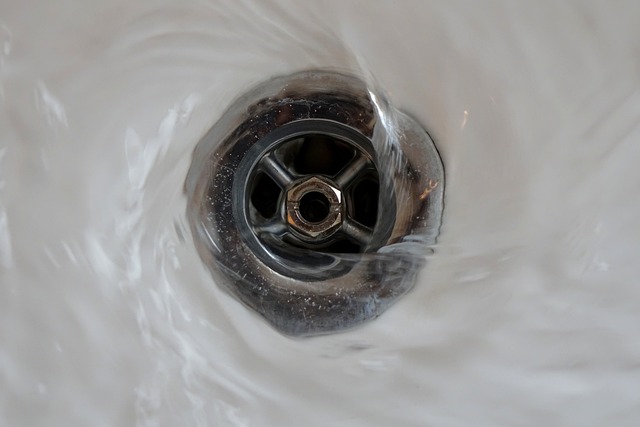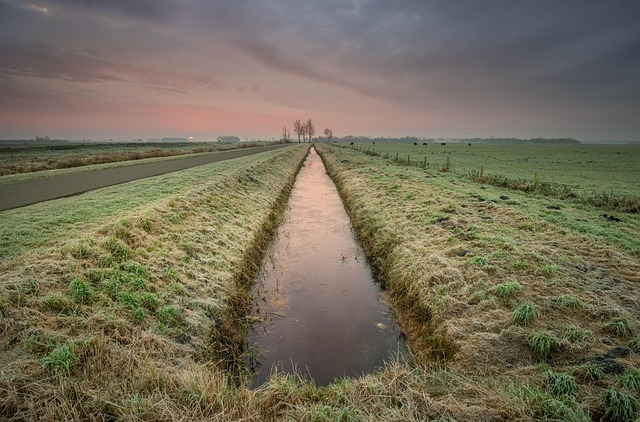Gurgling sounds in your sink aren't just annoying—they're Signs of a Clogged Drain. These noises indicate water pressure pushing against blocked drains, creating vacuums that cause distinct gurgles. Intermittent gurgling suggests a partial blockage, while continuous gurgling points to a complete obstruction further down the pipe. Early recognition allows proactive maintenance, preventing severe and costly drain issues. Common causes include hair buildup, grease accumulation, and foreign objects like cotton balls or wipes. If simple home remedies fail, persistent clogs or slow drainage signal a more severe problem requiring professional plumbers.
Do you hear that familiar gurgling sound from your sink? Don’t panic—it’s likely a clogged drain, a common household issue. Understanding the subtle signs and symptoms, like unusual gurgling, is key to identifying a problem before it escalates. This article will guide you through decoding these sounds, uncovering common causes, and determining whether to tackle the issue yourself or call in professional help for effective signs of a clogged drain resolution.
- Understanding the Gurgle: Decoding the Sounds of a Clogged Drain
- Common Causes of Drain Clogs: Uncovering the Culprits
- DIY Solutions vs. Professional Help: When to Act and When to Call an Expert
Understanding the Gurgle: Decoding the Sounds of a Clogged Drain

The gurgling sounds emanating from your sink aren’t just annoying; they’re actually a complex symphony of water pressure and blocked pipes. When you hear these telltale signs, it’s often an indication of a clogged drain. The gurgles occur because while some water can pass through the obstruction, the rest creates a vacuum in the pipe. This vacuum causes the characteristic gurgling noise as air is pulled back up through the trap.
Decoding the specific sounds can offer clues about the type and location of the clog. For instance, if you hear intermittent gurgles followed by a sudden stop, it suggests that the drain is partially blocked, with water backing up at certain intervals. Conversely, continuous gurgling might point to a complete blockage or an issue further down the pipe. Recognizing these signs early can help in addressing clogs before they become more severe and costly to fix, making maintenance a proactive rather than reactive process.
Common Causes of Drain Clogs: Uncovering the Culprits

Clogged drains are a common household issue, often accompanied by distinctive gurgling noises. Understanding the root causes behind these sounds is key to effective prevention and troubleshooting. Several factors can contribute to a blocked drain, with hair, grease, and foreign objects being the primary culprits. Hair buildup from everyday activities like washing hair or brushing teeth can gradually form clogs in the plumbing. Kitchen drains are particularly prone to grease accumulation from cooking activities, which solidifies and sticks to pipes over time.
Furthermore, foreign items such as cotton balls, wipes, or even small toys carelessly flushed down the toilet or poured into sinks can quickly cause drain obstructions. These objects can trap water, creating a suction effect that leads to the gurgling noise you hear when running water is suddenly disrupted. Recognizing these signs of a clogged drain allows homeowners to take prompt action, preventing more severe plumbing issues from arising.
DIY Solutions vs. Professional Help: When to Act and When to Call an Expert

If you’ve ever heard those familiar gurgles and splashes from your sink, you know bubble trouble is not fun. Before you reach for the DIY cleaning supplies, it’s important to recognize when a simple at-home fix won’t cut it. Signs of a clogged drain include persistent clogs that don’t go away after using plumbing snake or hot water, strong odors emanating from the drain, and slow drainage that results in water pooling in your sink.
When these symptoms persist, it’s time to consider professional help. Plumbers are trained to navigate complex drain issues with specialized equipment and techniques that aren’t accessible to homeowners. They can accurately diagnose the problem, whether it’s a simple hair or food debris buildup or a more serious issue like a broken pipe or root intrusion. Acting promptly by calling an expert when you suspect a clogged drain is crucial to avoid further damage and costly repairs.
Understanding the gurgling sounds your sink makes is key to identifying a potential clogged drain early on. By recognizing common causes like hair, grease, and foreign objects, you can take appropriate action—whether that’s trying DIY solutions or knowing when to call in professional help. Keeping an eye out for these subtle signs of a clogged drain will save you time, money, and the hassle of unexpected plumbing issues.
